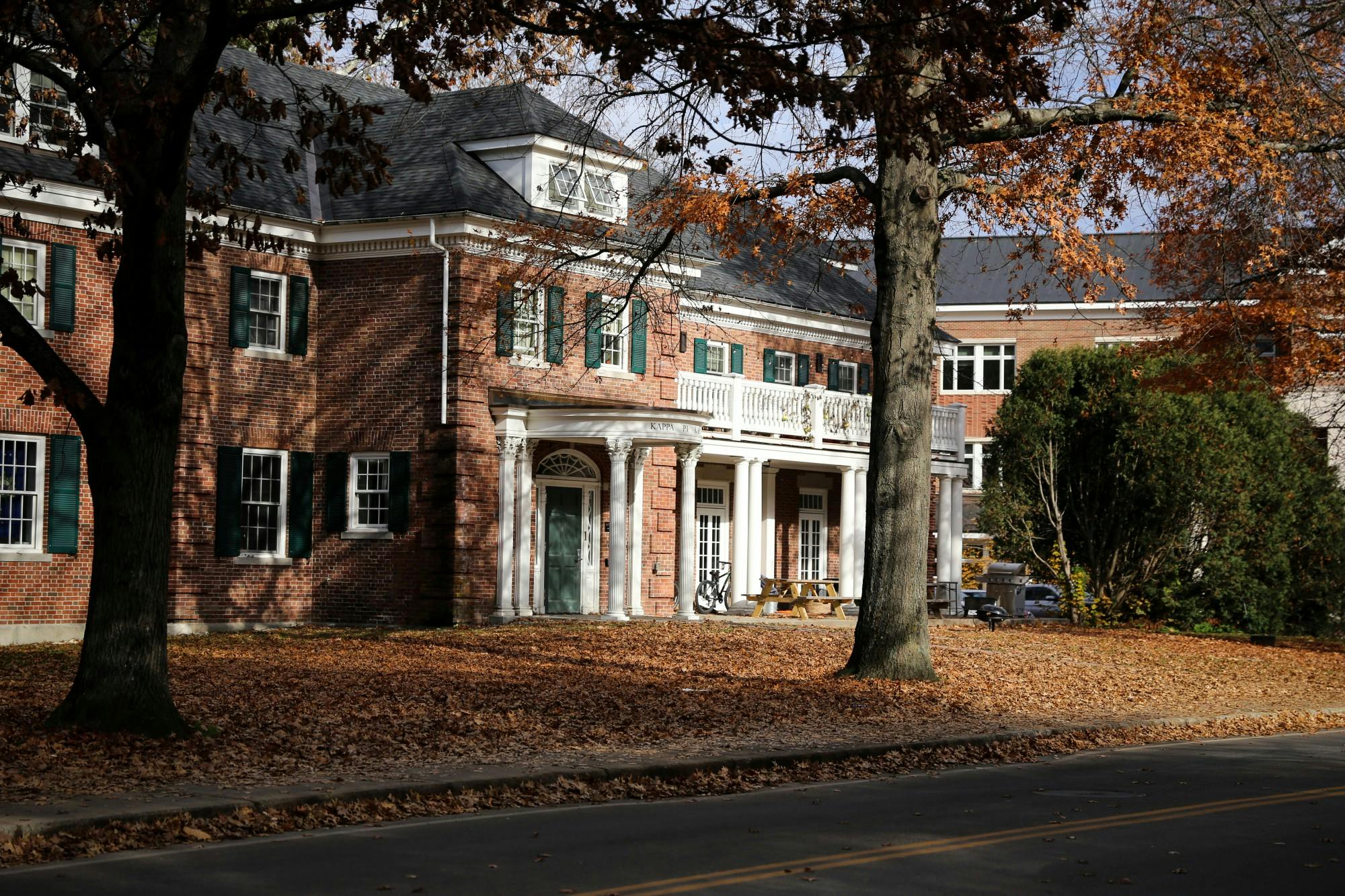The “frat ban” — which prohibits freshmen from entering Greek spaces for the first several weeks of fall term — was lifted on Tuesday, after a 24-hour extension from its original end date. The frat ban was initially scheduled to end at noon on Monday, Oct. 31, coinciding with Halloween and the end of Homecoming weekend.
According to Greek Leadership Council chair Andrew Bricklin ’23, the ban was extended “for risk management, safety reasons and to give chapters time to really welcome freshmen.”
The extension to the frat ban also helped to prevent first-year students from spending time in Greek spaces at the same time as alumni, according to Bricklin and Student and Presidential Committee on Sexual Assault executive Madeline Gochee ’23. The SPCSA played a role in lobbying for the extension, Gochee explained.
“The 24 hours was not going to be the end of the world, but because it fell on Halloween and alumni were still here, it had the potential of actually causing harm,” Gochee said.
The extension of the frat ban emphasized the importance of safety and risk management procedures in Greek spaces, according to Lucy Vitali ’26. She said that she and other freshman girls have been warned about potentially harmful situations with older male students in fraternities.
“[The extension] definitely made me think about safety more,” Vitali said. “[The frat ban] was extended for our safety, which means we would be otherwise unsafe going in, which is not awesome.”
Katie Gazzini ’25 and Gochee both said that there are “power dynamics” when entering a fraternity, particularly for young women.
“When I was a freshman, I was a little annoyed about [the frat ban] at first, but I think it’s important to have your first experiences with college partying with people your own age, in spaces with a less powerful power dynamic,” Gazzini said. “It’s a lot safer being with other 18, 19, 20-year-olds, rather than blacking [out] in the basement of [a frat] surrounded by 22-year-olds.”
Gochee and Gazzini both explained that frats may at times invite high-risk scenarios, but that not all dynamics are negative.
“There are a lot of social dynamics that are not all evil, terrible, negative, but it is true that a lot of the time people are going out to hook up with people,” Gochee said. “And when that’s surrounded by things like alcohol and drugs, that can just be a recipe for really high-risk scenarios.”
Ultimately, Gochee and Bricklin both said that the goal of the frat ban from the perspective of both SPCSA and the GLC is to mitigate harm and try to smooth the transition to college social scenes. Bricklin noted that the frat ban is also an important time for new members of fraternities to be trained in risk management and by the Sexual Violence Prevention Project, a mandatory training in which all new members of Greek life participate.
“Executive functions are trying to both prevent and respond to these moments of potential harm as effectively as possible,” Bricklin said. “That means consistently working with student organizations and other campus organizations … to better support everyone’s united goal of creating a safe space that is welcoming, equitable and inclusive.”
Before the lifting of the frat ban, some ’26s have created their own social events, such as “Choatapalooza.” However, freshmen weren’t necessarily content with these events, according to Philip Ernst ’26.
“As a class, we were very good at organizing social events for ourselves, but every time it happened, [Safety and Security] came and shut it down right away,” Ernst said.
Bricklin offered a final piece of advice for freshmen entering Greek spaces this week.
“The frat ban ending potentially changes the social situation, but I really encourage people to approach it with an open mind,” Bricklin said.
Don’t bring your nicest jacket, he added.
Charlotte Hampton is the editor-in-chief of The Dartmouth. She hails from New York, N.Y., and is studying government and philosophy at the College.
She has previously worked as an intern at Bloomberg News, where she was writing about work, and the Voice of America, where she was writing for the press freedom desk. Her writing has also appeared in the Los Angeles Times, Fortune, the Miami Herald and her local paper: the West Side Rag. She is the recipient of the 2024 Reveille Seven Courage in Student Journalism Award for her reporting on campus protest in the spring of 2024. She is a member of the Board of the Student Press Law Center.
Outside of The D, she likes reading Clarice Lispector, Gabriel Garcia Marquez, Annie Dillard and one sentimental copy of “A Coney Island of the Mind.”
You can reach her with tips/corrections at editor@thedartmouth.com. You may submit letters to the editor to the same email. She is also reachable on Signal at 9176831832.




